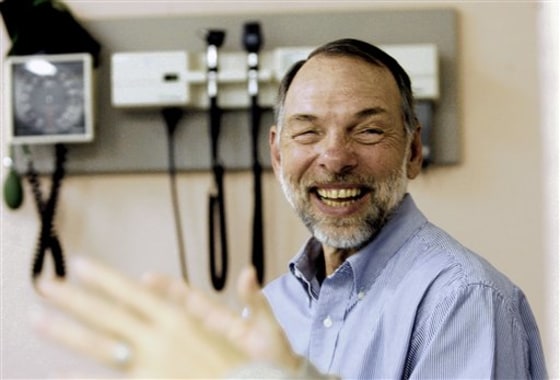Ernest Brown, of Kirtland, had a stroke in June 2009 and stopped understanding words.
Richie Knauss, of Cortez, Colo., had a stroke in January 2007 and lost his ability to speak.
The two men and their wives meet monthly as part of an aphasia support group at San Juan Regional Rehabilitation Hospital. They are close friends who encourage and inspire each other during the lifelong recovery that follows a debilitating stroke.
"I encourage Richie ... I say, Don't give up,'" Brown said. "You have to start somewhere."
The aphasia support group started two years ago as a spinoff of a larger support group for stroke patients, said Beth Rabourn, a rehabilitation nurse at the hospital.
Aphasia is a medical condition when people lose their grasp of language. Most aphasic patients have either had a stroke or traumatic brain injury.
There are different levels of the disability, Rabourn said.
Some patients speak, but the words are nonsensical and they can't comprehend words. Others can understand speech but can't form their own words, she said. The worst-case scenario is when the different forms of aphasia overlap.
Knauss has expressive aphasia, said Joyce Lameire, a speech therapist at the hospital who worked with both men. After his stroke, he could follow instructions and understand written directions, but he couldn't put together his own words.
Brown has receptive aphasia, she said. He could speak words but he couldn't understand speech.
"He would say yes to everything, but he couldn't follow instructions," she said.
Aphasic patients can improve greatly, Lameire said. It depends on their support systems and their motivation to push themselves and try exercises.
"Stroke recovery is forever," Rabourn said. "Your brain is always capable of creating new pathways."
Having supportive family and friends also improves the success of recovery, she said. That's where the support group comes in.
"Both men have made remarkable process, but it has to do with the determination," Lameire said.
Brown and Knauss aggressively push themselves to get better. Many aspects of their lives have returned to normal since their strokes.
Brown was a small business owner before the stroke stagnated the business, Brown's Navajo Masonry. He's slowly returning to regular work. He recently installed a chain-link fence for a neighbor. It was his first laborious project since the stroke.
After the stroke, Brown started poring through children's picture dictionaries to relearn his vocabulary. He now reads at a middle-school level.
"I study words like a little kid," Brown said. "It's hard, but I'm beginning to understand."
Knauss was an engineer for Xerox. In addition to losing his language, he almost lost all ability to do math, which once was his career.
He is improving by completing math assignments for young school children, and he is practicing basic algebra. He also is building a small toy train set, which helps his fine motor and math skills.
He also has adaptive hunting equipment and has returned to hunting deer and elk in southwest Colorado.
Three couples regularly take part in the aphasia support group, Rabourn said. But the hospital suspects there are other local patients who are battling aphasia on their own.
In March, the hospital will expand the support group and extend the invitation to any person or couple who would like to attend. There is no cost to attend the group, and
the open meeting will be at 10 a.m. March 10, at the San Juan Regional Rehabilitation Hospital, Rabourn said.
At the monthly support group Wednesday, Brown, Knauss and their wives talked about recent successes and struggles of the recovery process.
Brown is nervous about driving again. He asked Knauss questions about how he relearned to drive after the stroke. He asked if Knauss was scared to get behind the wheel, or if he was confident. Then he reminded Knauss to keep doing his math homework.
"This gives me an audience of people like me ... it helps me," Knauss said. "I also have been able to help them. It's a mutual relationship."
